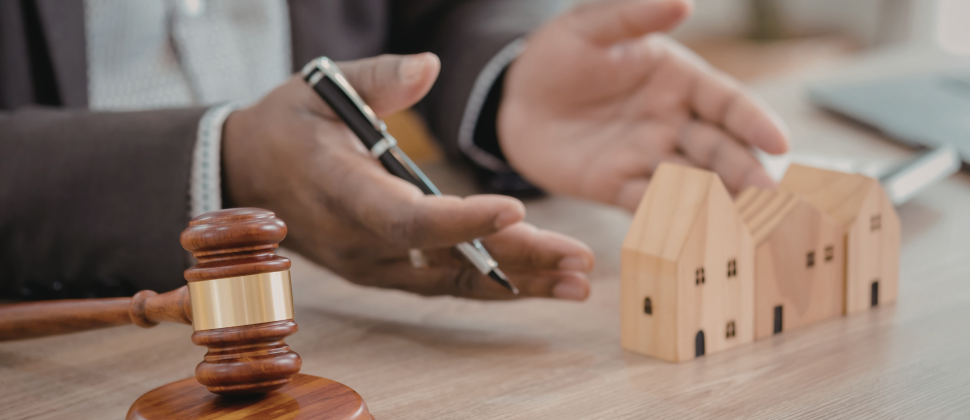Can You Lose Your House in a Personal Injury Lawsuit in Florida?

Being involved in a personal injury case can be stressful, regardless of whether you’re the injured party or the one who caused the injuries. Most of these cases settle out of court, but some do end up going to trial. Regardless of where your case takes you, you may be worried about what you could potentially lose. For example, you may be wondering, “Can you lose your house in a personal injury lawsuit in Florida?”
The short answer is no; you typically cannot lose your primary residence in a Florida personal injury case. That said, it is possible to lose other assets if the compensation you must repay exceeds your insurance coverage and other methods of repayment. It’s important to understand what’s at risk if you’re involved in a personal injury case. That way, you can protect yourself.
About Personal Injury Cases in Florida
If someone is injured due to another party’s misconduct or negligence, they may have grounds to file a personal injury claim to recover their losses. However, they must do so within two years of the injury.
Personal injury cases can be the result of any number of incidents. In 2023, approximately 4,380 people died from falls in Florida. The year prior, 3,530 fatalities were from motor vehicle accidents alone.
Some of the most common types of personal injury cases our team handles include:
- Defective products
- Motor vehicle accidents
- Pedestrian accidents
- Public transportation accidents
- Slip and fall
Types of Personal Injury Claims in Florida
The type of claim you file for an incident can also impact how long the case takes. Personal injury cases either involve a victim filing a personal injury claim or an eligible party filing a wrongful death claim on behalf of the victim. You must file your claim either within two years of the incident or the victim’s death, depending on which type of claim you’re filing.
Damages for personal injury claims can include:
- Emotional distress
- Loss of enjoyment of life
- Loss of future earning potential
- Lost wages
- Medical expenses
- Ongoing out-of-pocket expenses
- Pain and suffering
- Property damages
Additionally, you can recover compensation for funeral expenses, loss of consortium or companionship, and loss of the victim’s future earning potential. The amount you can recover from a personal injury claim ultimately depends on the strength of your claim. This requires gathering strong evidence and presenting a cohesive case that tells your story.
Is My Home Safe From a Personal Injury Claim?
Once it’s determined how much you owe the victim, it’s up to you to come up with the amount. Under the Florida Homestead Exemption, your primary residence is safe from all creditors. This shields it from being pursued in personal injury claims, too. Typically, you only have to file for a homestead exemption after you establish your primary residence.
Just because your primary residence is safe does not mean the rest of your assets enjoy the same protections. Common types of assets that can be seized to satisfy a judgment in Florida include:
- Bank accounts
- Business assets
- Personal property
- Real estate
- Vehicles
- Wages
A Local Florida Defense Lawyer You Can Trust
If you’re worried about losing your assets in a personal injury case, it’s wise to get in contact with a defense lawyer you can trust. Paul Figueroa Law has 16 years of experience in defending Floridians through a variety of unique legal battles. Over the years, Mr. Figueroa has represented thousands of clients, and he’s ready to hear your story next.
FAQs
Q: What Assets Are Protected From a Personal Injury Case in Florida?
A: If you’re involved in a personal injury case in Florida and are required to compensate an injured party, it’s possible for the court to come after your assets to settle the debt. That said, certain assets are protected from this process. These include life insurance policies, the primary residence, and retirement accounts.
Q: How Do I Protect My Assets During a Florida Personal Injury Case?
A: It’s important to understand Florida’s asset protection laws, as they show you how to protect your assets during a personal injury case. Even if you do extensive research on your own, it’s highly recommended that you reach out to a Florida attorney. That way, you can be sure you’re doing everything in your power to keep your assets safe. You can further protect your assets through asset protection trusts and business licenses, depending on the type of asset.
Q: Do I Have to Work With a Florida Defense Lawyer?
A: You’re not obligated to work with an attorney if you’ve had a personal injury claim filed against you. That said, it’s highly recommended that you do. It can be difficult to navigate a legal case on your own, especially without the resources to collect the evidence you need to prove your innocence.
Our founding attorney, Paul Figueroa, has been practicing law for over a decade, focusing on personal injury and criminal defense. His work can be invaluable in this process.
Q: How Much Does It Cost to Work With a Florida Defense Lawyer?
A: When facing a personal injury case, the right representation can be critical. It can be difficult to choose the right lawyer for your case, but it helps to know what you want. Most lawyers charge based on their experience level and the complexity of the case presented to them. You can expect them to charge a flat fee, an hourly rate, or a retainer, depending on the firm.
Talk to a Florida Defense Lawyer About Your Situation Today
Personal injury cases can be complicated and emotionally draining. Our lawyer at Paul Figueroa Law has experience on both sides of these claims, so we’re confident we can help you through yours.
No matter the situation, you can count on us to help you make the right decisions for your future. If you’re ready to learn more, contact our office to set up a consultation with our team today.







